In this section, we talk about Down syndrome and life with Down syndrome. We discuss various topics:
Why does Down syndrome happen?
What difference does Down syndrome make in a person’s life?
Why does Down syndrome happen?
Down syndrome is sometimes known as Trisomy 21. Trisomy means “three chromosomes”. Chromosomes carry genes. Babies receive their chromosomes at conception. Chromosomes usually come in pairs. We get 23 chromosomes from an egg (from the biological mother) and 23 matching chromosomes from the sperm (from the biological father). Trisomy occurs when a baby gets an extra chromosome from one of the parents.
Down syndrome, or Trisomy 21, occurs when the baby has three copies of the 21st chromosome instead of two copies. Most often, this happens purely by chance. Some rare cases are due to an arrangement in the mother’s or in the father’s chromosomes. It is never due to something that the parents did or did not do.
The chances of having a baby with Down syndrome increase as the mother gets older. However, it can happen at any age. In fact, most babies with Down syndrome are born to younger mothers, because younger women have more babies.
It happens more or less often in certain countries because of the age in which women get pregnant, the availability of prenantal screening and diagnostic, access to abortion, and unkown environmental and genetic factors. For example, it happens in about 1 in 800 births in Canada.
Learn moreDown syndrome and maternal age:
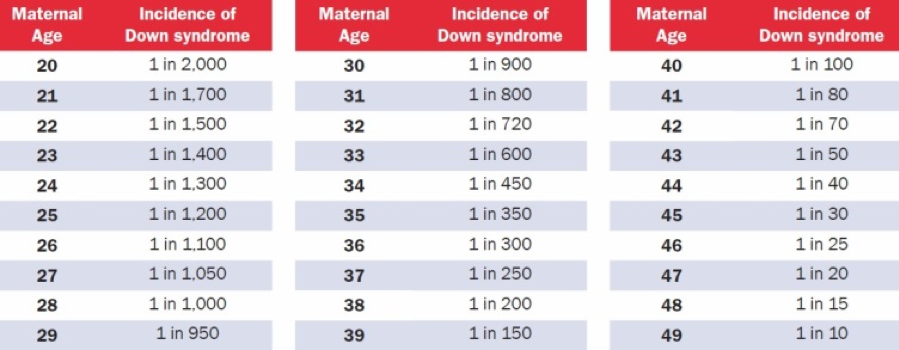
What difference does Down syndrome make in a person’s life?
In some ways, people with Down syndrome are just like other people. They have their own character that is not defined just by Down syndrome. They have desires and goals. They have meaningful relationships with other people. The difference that Down syndrome makes varies between people. It depends on the presence of health problems and on the extent of intellectual disability, which is not the same in everyone with Down syndrome. It also depends on the support they get, the opportunities they are given and their stimulation and social participation.
Learn moreThe impact of Down syndrome depends on the person’s intellectual capacities, whether they have medical conditions, and the environment in which they live. Having medical conditions means that the person will require more medical visits and interventions. Just like other people, individuals with Down syndrome have strengths and weaknesses. Many families of people living with Down syndrome say that in most ways, they are just like other family members who do not have Down syndrome.
Early milestones
Nearly all children with Down syndrome learn to walk and most learn to speak. Children with Down syndrome often need speech and physical therapy to achieve these milestones. However, a minority of them never learn to speak. Most of those who cannot speak can learn sign language or use electronic devices to communicate.
Learn moreAlmost all babies with Down syndrome have decreased muscle tone. This means that it takes them longer to become mobile and start walking and that they may require more stimulation. A large majority learn to walk before they turn four. Physical and occupational therapy can help with motor development.
Some people with Down syndrome speak very well while others are not able to speak at all. Most can be understood but might speak more slowly and/or less clearly. Speech therapy can help in maximizing speech capabilities. Some individuals with Down syndrome with limited verbal skills use a computerized keyboard to communicate effectively. Speech capabilities do not necessarily reflect cognitive capabilities.
School participation
Children with Down syndrome regularly attend school. Most children with Down syndrome receive special education services. Some receive these services in a regular class (inclusion), and some receive services in a small group setting for children with special needs. A few reach university.
Learn moreChildren with Down syndrome usually attend school. They may be included in a regular or in a special education class. This decision is made by the parents and school staff and depends on the intellectual capabilities of the child, the school’s resources, and the parents’ and child’s preferences. School integration strategies are much more developed today than they were in past decades.
A few people with Down syndrome do live alone and/or drive cars. Increasingly more people with Down syndrome are going to college and finding meaningful employment in their communities. Individuals with Down syndrome may also participate in sports and leisure activities. Some perform well in the Paralympic or Special Olympics competitions. Participation in sports and leisure helps develop physical and mental abilities and promotes socialization.
Adult life
As adults, most people with Down syndrome continue to need at least some support from their families. Some of them live in their own residence with regular contact with family. Some of them stay with family members all their lives. They can also live in group homes or residences, which offer assistance for activities of daily living. Most people with Down syndrome can work in some capacity, but some areas are behind in offering opportunities and supports for them. Some people with Down syndrome have regular jobs and some find work through special programs. Some cannot work. A few can drive a car. Most women with Down syndrome are fertile (they can have biological children) but most men with Down syndrome are infertile (they cannot have biological children). People with Down syndrome can have a love life. They have preferences and dreams just like other people.
Learn moreMost individuals with Down syndrome require at least some degree of assistance in adult life. Some may live on their own but require help with finances and emergencies. Others may require supervision on a continuous basis. They may live in group-homes or stay with their parents or other family members. Some may live in long-term care facilities.
Experiencing disability
People with Down syndrome and their families also have good days and bad days, like most people. Their struggles are often due to health problems. Biases against them and access to supports and services can also be a strain. Disability itself is usually not the main source of struggle. In fact, most people with Down syndrome say they are happy.
Learn moreResearch shows that people without disabilities tend to underestimate the life satisfaction of people with disabilities. It can be difficult for a person with “typical” function to imagine themselves or their family members living with a disability and being satisfied with their lives. This may be because of social bias, a lack of lived experience, or experiences with people with disabilities who grew up during times supports and services were not available. Yet, a large majority of people with disabilities, including Down syndrome, report being happy and satisfied with their lives.
Family life
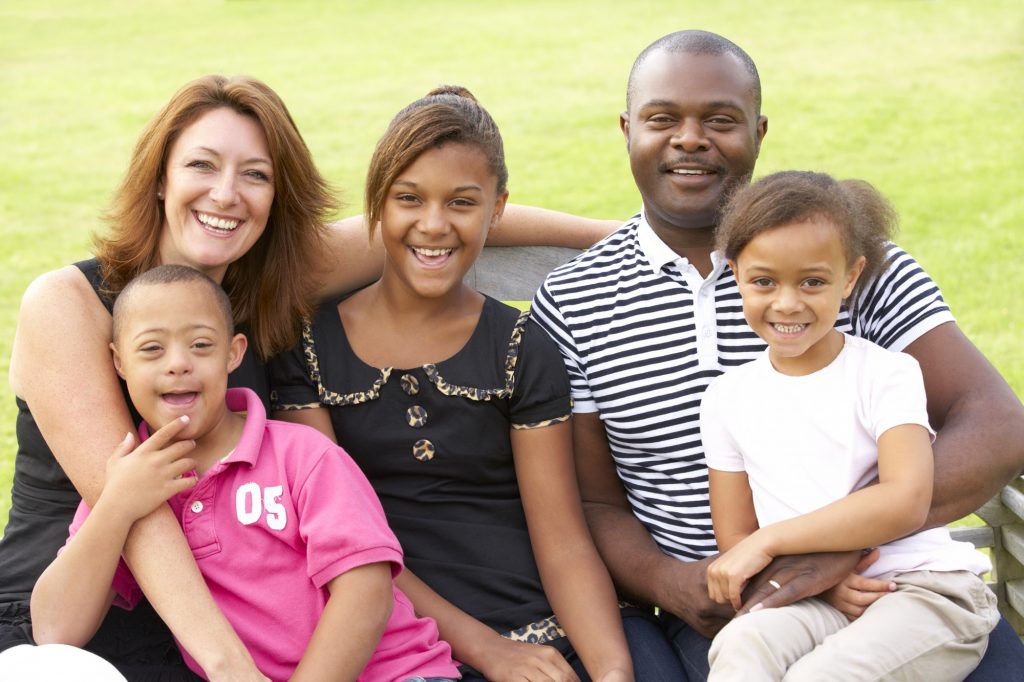
Most of their siblings and parents also are pleased with their life and family ties. Many of them feel that their loved one with Down syndrome makes them a better person.
Learn moreMany people assume that having a child with Down syndrome will have a negative impact on their family functioning. This might be because of people’s expectations regarding the special requirements for care and support. Some studies did find a negative impact of Down syndrome on quality of life, often when families did not receive needed supports.
However, other studies show that children with Down syndrome often have a neutral or positive impact on family life. Parents-child and sibling relationships are just as gratifying and challenging in families living with Down syndrome as in other families. One study found lower divorce rates in couples who raise a child with Down syndrome.
Research shows that siblings of children with Down syndrome are well-adjusted and have very developed interpersonal and caring skills. They also value positively their relationship with their sibling with Down syndrome.
It is not possible to know in advance the severity of the intellectual disability, developmental delays, and medical conditions. However, there is no direct relationship between the severity of these issues and feelings of parents (positive or negative) about the experience of parenting a child with Down syndrome.
It is also impossible to know in advance which parents and families will adapt more easily and which will struggle more. The experience of life with Down syndrome is as diverse as the experience of life without it. Pregnant women and expecting couples can learn about Down syndrome and try to imagine themselves and their family in that situation.
Life expectancy
People with Down syndrome have a shorter life span. Most people with Down syndrome live into their early 60’s with access to good medical care.
Learn moreWith ongoing improvement in care and management of medical complications, the life expectancy of individuals with Down syndrome has now reached 60. Around that age, many people with Down syndrome may develop dementia and die from health conditions such as heart problems or cancer.
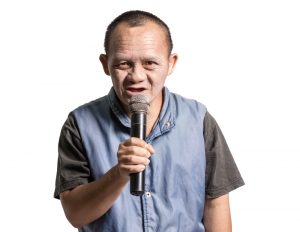
Medical conditions
People with Down syndrome are more prone to having certain health problems. Heart defects and digestive tract issues are among the most common problems. Many of these problems require surgery. The success rate for the surgeries is very high. People with Down syndrome are also more prone to have problems with their thyroid and thyroid conditions are now easily treated with medicine.
People with Down syndrome often have low muscle tone and lax ligaments. This means that they can become very flexible. However, it also makes them more prone to joint injury. People with Down syndrome also often have decreased hearing and sight. They also have a higher risk of developing leukemia . About 1% of people with Down syndrome develop leukemia in childhood, However, they respond better to treatments than people who do not have Down syndrome. Finally, people with Down syndrome have a higher risk of developing Alzheimer’s. About 50% show signs of Alzheimer’s disease by the age of 50.
It is not always possible to know in advance which medical problems a baby with Down syndrome will have. Most people with Down syndrome have at least one of them and rarely all of them. They can usually be managed with medical support.
Possible pregnancy outcomes
Down syndrome can cause problems during pregnancy. Losing the baby is more common when the baby has Down syndrome. Pre-term birth and low birth-weight are more common. Heart problems in the newborn baby and stillbirths are also more common.
Learn moreMiscarriages happen in about 25% to 30% of pregnancies with Down syndrome, which is slightly more often than in typical pregnancies. This means that many women never find out that they had a pregnancy with Down syndrome. Stillbirths and complications during delivery are also more common in pregnancies with Down syndrome.
Intellectual capabilities

All people with Down syndrome have an intellectual disability, defined as limitations in intellectual functioning and adaptive behavior. Intellectual functioning include the ability to reason, learn, solve problems and understand complex ideas. Adaptive behavior include the ability to look after oneself, adapt to one’s environment, and practical and social skills.
The intellectual disability can be mild, moderate, or severe. For people with Down syndrome, it is most often mild or moderate. However, it is not possible to know in advance what level of intellectual disability an person with Down syndrome will have. To some extent, it depends on early stimulation. People with mild or moderate intellectual disability can learn to read and count. They may work and be independent in daily life. People with moderate intellectual disability need more guidance in daily life. They can learn basic self-care. People with severe disability need full time ongoing support.
Learn more- IQ is a measure of intellectual functioning. The average IQ in the general population is about 100. About two thirds of people have an IQ between 85 and 115.
- Mild intellectual disabilityis used to describe the mental capabilities of a person with an IQ between 50 and 70. A moderate intellectual disability describes an IQ between 35 and 50. A severe intellectual disability refers to an IQ between 20 and 35. On average, people with Down syndrome have an IQ of 50, ranging between 30 and 70.
- Individuals with Down syndrome often have better adaptive behavior compared with their intellectual functioning. They function better in daily life and social situations than their IQ score would predict.
Distinct physical traits
People with Down syndrome share some noticeable physical traits. They tend to be shorter than average. Their head, ears, mouth, hands, and feet also tend to be small. Their noses are a bit more flat, and their eyes have more of an almond shape. However, people with Down syndrome mostly resemble their parents and family members.
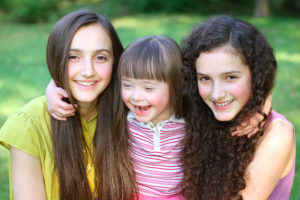
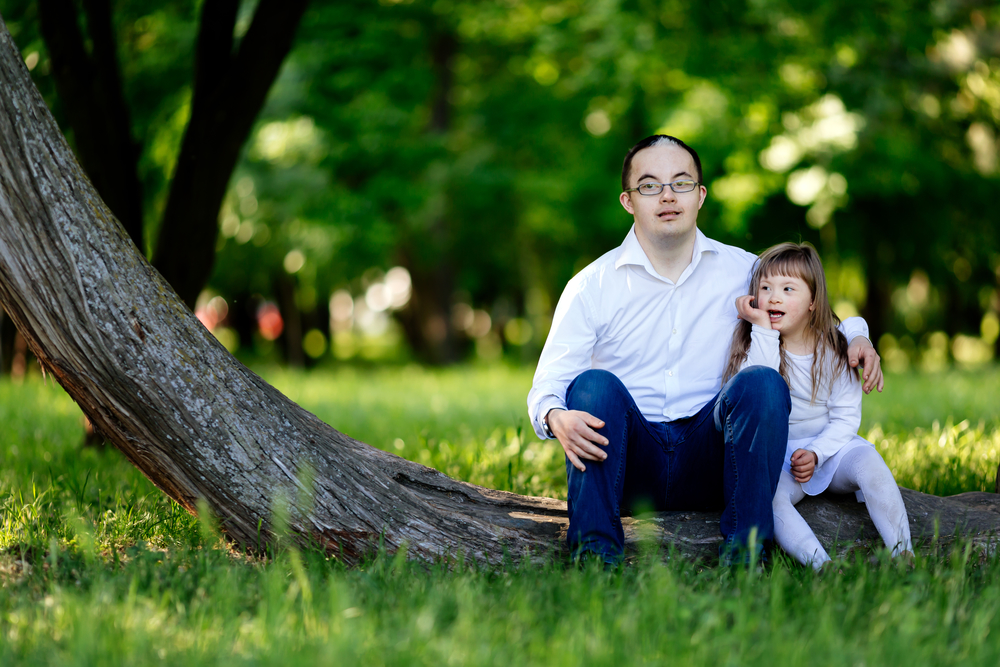
Services
In Canada, the services offered to families living with Down syndrome vary from province to province. Municipalities and support organizations may also offer various types of assistance locally.
Down syndrome associations may help you identify services in your region. To find out more about Down syndrome organizations in Canada, click here.
Other online resources exist, such as:
Lettercase.org (based in the United States) : lettercase.org
Down syndrome pregnancy (based in the United States): https://downsyndromepregnancy.org/
Down Syndrome Diagnosis Network (based in the United States): https://www.dsdiagnosisnetwork.org
Down Syndrome Clinic to You (available world wide): dsc2u.org
References
See referencesFoley, K-R. Dyke, P. Girdler, S. Bourke J. & Leonard, H. (2012) Young adults with intellectual disability transitioning from school to post-school: A literature review framed within the ICF, Disability and Rehabilitation, 34:20, 1747-1764, DOI: 10.3109/09638288.2012.660603
Savva, G.M., Morris*, J.K., Mutton, D.E. Alberman, E. (2006). Maternal age-specific fetal loss rates in Down syndrome pregnancies. Prenatal Diagnosis, 26:499-504.
Sansone, S.M., Schneider, A., Bickel, E. et al. Improving IQ measurement in intellectual disabilities using true deviation from population norms. J Neurodevelop Disord 6, 16 (2014). https://doi.org/10.1186/1866-1955-6-16
Scott, M., Foley, K.R., Bourke, J., Leonard, H & Girdler, S. (2014) “I have a good life”: the meaning of well-being from the perspective of young adults with Down syndrome, Disability and Rehabilitation, 36:15, 1290-1298, DOI: 10.3109/09638288.2013.854843
Sheets, K.B., et al., Practice guidelines for communicating a prenatal or postnatal diagnosis of Down syndrome: recommendations of the national society of genetic counselors. J Genet Couns, 2011. 20(5): p. 432-41.
Skotko, B. G., S. P. Levine and R. Goldstein (2011a). “Having a brother or sister with Down syndrome: perspectives from siblings.” American Journal of Medical Genetics. Part A. 10(59).
Skotko, B. G., S. P. Levine and R. Goldstein (2011b). “Having a son or daughter with Down syndrome: perspectives from mothers and fathers.” American Journal of Medical Genetics. Part A. 10(47).
Skotko, B. G., S. P. Levine and R. Goldstein (2011c). “Self-perceptions from people with Down syndrome.” Am J Med Genet A. 155a(10): 2360-2369.
Thomas K, Girdler S, Bourke J, et al. Overview of health issues in school-aged children with Down syndrome. Int Rev Res Ment Retard 2010;39:67–106.
National Down Syndrome Society. URL: http://www.ndss.org/. Page accessed on September 28, 20221
Canadian Down Syndrome Society. “Can a person with Down syndrome live on their own?”. URL: https://cdss.ca/down-syndrome-answers/can-a-person-with-down-syndrome-live-on-their-own/. Page accessed on September 28, 2021.
Canadian Down Syndrome Society. “Can a person with Down syndrome get their driver’s licence?”. URL: https://cdss.ca/down-syndrome-answers/can-a-person-with-down-syndrome-get-their-drivers-licence/. Page accessed on September 28, 2021.
Canadian Down Syndrome Society. “Down syndrome answers”. URL: https://cdss.ca/down-syndrome-answers/. Page accessed on September 28, 2021.
United Nations. “World Down Syndrome Day, 21 March?”. URL: https://www.un.org/en/observances/down-syndrome-day. Page accessed on September 28, 2021.

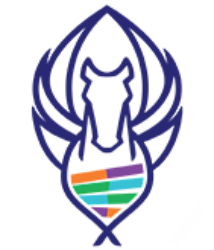
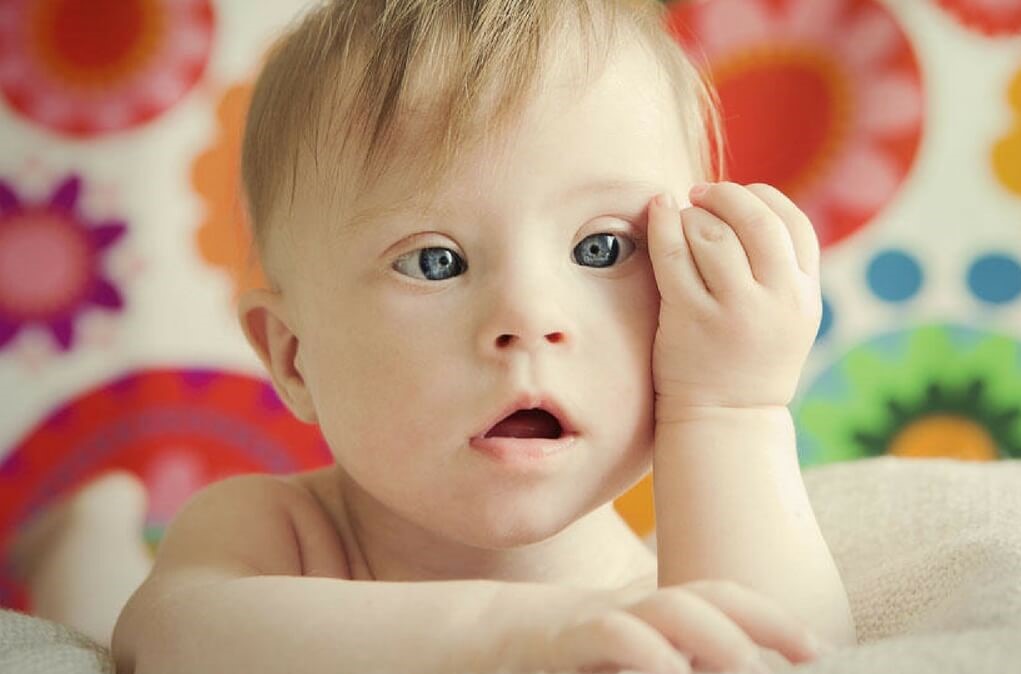

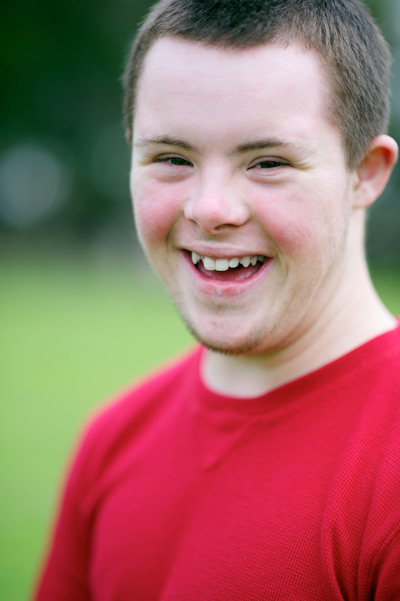
One Reply to “Down syndrome”